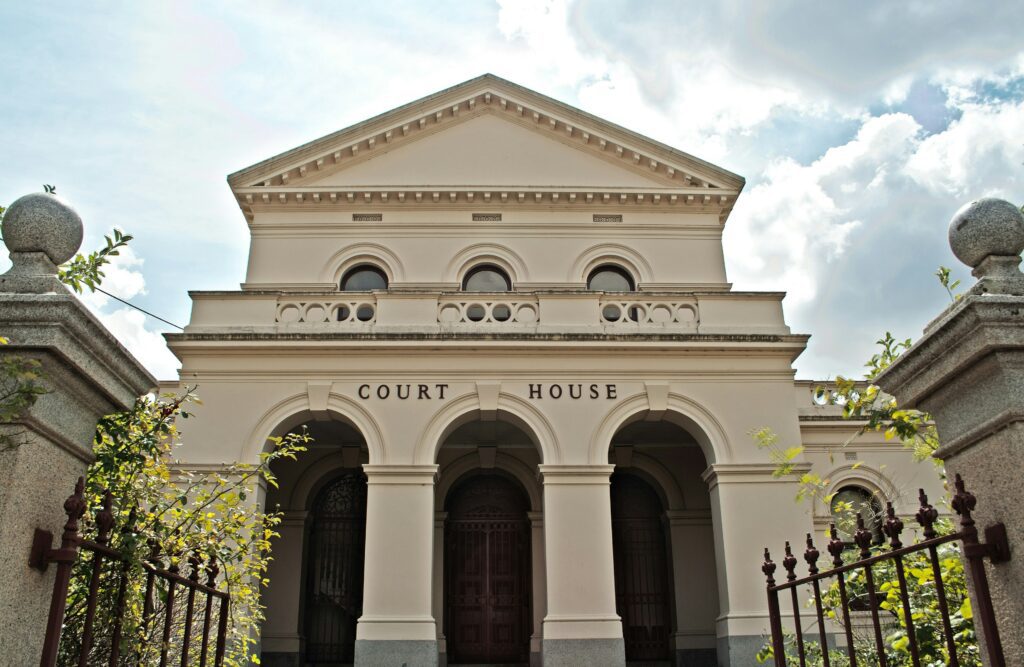The Difference in the Types of Arizona Courts
Unless they fall under federal law, most legal matters and criminal cases that occur in Arizona will fall under the jurisdiction of Arizona or one of its municipalities. There are a variety of courts that can hear cases within the state, with each type having its own regulations and processes. Some courts have limited jurisdiction, meaning they are not able to handle every type of case, while others handle only appeals. The main types of adult courts in Arizona are:
- Justice Courts
- City/Municipal/Magistrate Courts
- Superior Courts
- Court of Appeals
- Arizona Supreme Court
Justice Courts
Each county in Arizona is further subdivided into justice precincts served by at least one justice court. Justice courts are presided over by a justice of the peace, who is elected to a four-year term. Justices of the peace do not need to be attorneys in order to be elected.
Justice courts are only able to hear minor civil lawsuits (disputes of $10,000 or less), small claims cases, civil and criminal traffic offenses, orders of protection/injunctions against harassment, and misdemeanors cases. Some may also be able to handle preliminary hearings for felony cases.
City/Municipal/Magistrate Courts
The terms for city courts, municipal courts, and magistrate courts can all be used interchangeably. While each city or town officially designates their courts as one or the other, they serve the same purpose. These municipal courts are presided over by municipal court judges, sometimes called magistrates. Each city sets its own requirements for magistrates; not all cities require them to be attorneys. While their terms must be at least two years, cities also decide how they are elected or appointed, as well as term lengths beyond two years.
Municipal courts, like justice courts, have limited jurisdiction and can only hear certain cases involving state law or city/municipal ordinance. This includes misdemeanors or petty criminal offenses, criminal or civil traffic cases, search warrants, and orders of protection/injunctions against harassment.
Superior Courts
Superior courts in Arizona are considered “general jurisdiction” courts, meaning they have jurisdiction over a wide array of cases as a state-wide trial court. Each county has at least one superior court judge, with larger counties having numbered divisions with their own judges. Unlike in justice or municipal courts, superior court judges must be licensed attorneys. Each serves a four-year term. Additionally, superior courts may utilize commissioners, hearing officers, and judges pro tempore in court proceedings.
Arizona’s superior courts handle:
- Cases that do not have exclusive jurisdiction in another court.
- Equity cases.
- Cases with property in question valued at $1000 or more.
- Felonies and misdemeanors.
- Evictions of renters.
- Insolvency (but not bankruptcy, as this is federal).
- Actions to prevent or stop nuisances.
- Naturalization/issuance of appropriate documents for legal events.
- Special cases and proceedings not otherwise provided for.
Court of Appeals
Arizona’s court of appeals is an appellate court that handles appeals (applications to reverse a court ruling) that arise from superior court cases. The court has two divisions: one in Phoenix and one in Tucson. The court of appeals is considered an intermediary appellate court, with the Supreme Court being the last resort. While cases which imposed the death penalty will be sent directly to the Supreme Court, all other superior court appeals will be heard first in the court of appeals.
The court of appeals can also handle special actions, such as writs of certiorari.
The court of appeals is presided over by a court of appeals judge who must be a licensed attorney.
Arizona Supreme Court
Sometimes called “the court of last resort,” the Supreme Court is the highest court in the state and handles appeals for all the other courts in Arizona, for which it also provides procedural rules. Additionally, the Supreme Court regulates the State Bar of Arizona and has the authority to admit, suspend, or disbar attorneys.
The Supreme Court has discretionary jurisdiction, meaning that it has the right to refuse hearing certain cases. However, this does not apply to death sentence cases, for which any appeals go directly to the Supreme Court.
The Supreme Court is served by seven justices who serve for six years. The justices also select a Chief Justice, who serves a term of five years. All justices must be licensed attorneys.
RIDEOUT LAW GROUP
With offices in Lake Havasu City and Scottsdale, our firm serves the entire state of Arizona, with a particular focus on criminal defense, family law, and juvenile cases.
Our goal is for the best outcome for your criminal case, which can include:
- charges that are reduced or dropped.
- top experts reviewing your case.
- aggressive negotiations with the prosecution for plea bargains.
- fines or probation in lieu of jail time.
At Rideout Law Group, our attorneys are able to expertly examine the evidence in your case to provide a strong strategy for argument that leads to an outcome that is most favorable to you. We have experience in all types of criminal cases for both adults and juveniles, with positive outcomes both in plea negotiations as well as jury trial settings.
Call us today for a free consultation at 480-584-3328.
